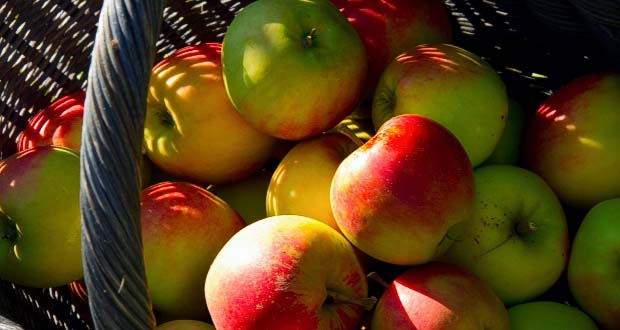In the Odyssey, Homer’s epic about the family as the center of civilization portrays two ways of life—the civilized and the barbaric. The civilized dwell in homes, the barbaric in ...
Read More »
Dr. Mitchell Kalpakgian June 20, 2013 8,198 Views
In the Odyssey, Homer’s epic about the family as the center of civilization portrays two ways of life—the civilized and the barbaric. The civilized dwell in homes, the barbaric in ...
Read More »Dr. Mitchell Kalpakgian June 13, 2013 7,252 Views
In Robert Frost’s “After Apple-Picking” the narrator spends an entire day from morning till evening picking all the apples before the first frost of the season. He has spent the ...
Read More »Dr. Mitchell Kalpakgian June 7, 2013 7,989 Views
A person can live in a narrow world or a wider universe. He can live in a state of stagnation with no goals or ambitions, or keep his life in ...
Read More »Dr. Mitchell Kalpakgian May 23, 2013 7,346 Views
In The Way of a Storyteller Ruth Sawyer tells an anecdote about a gifted furniture maker renowned for his craftsmanship whose work was in great demand by the prominent and ...
Read More »Dr. Mitchell Kalpakgian January 3, 2013 7,034 Views
This piece is transcribed from a commencement speech delivered by the author. In Lucretius’s famous words, “Nothing can come from nothing.” A hundred or a thousand or a million times ...
Read More »Dr. Mitchell Kalpakgian December 3, 2012 11,455 Views
This 100th anniversary edition of Chesterton’s poetic version of King Alfred’s heroic defense of Christian England from the pagan Danes is an exquisite publication.It embellishes the famous narrative and provides ...
Read More »Dr. Mitchell Kalpakgian November 3, 2011 7,499 Views
Simone Weil, a noted Jewish philosopher, remarked, “Imaginary evil is romantic and varied; real evil is gloomy, monotonous, barren, boring. Imaginary good is boring; real good is always new, marvelous, ...
Read More »Dr. Mitchell Kalpakgian August 3, 2011 6,813 Views
In A Wonder Book and The Tanglewood Tales Hawthorne retells some of the famous classical myths in an imaginative and charming style that captures the universality and moral wisdom of ...
Read More »Dr. Mitchell Kalpakgian August 3, 2011 6,575 Views
One of the greatest of Catholic poets, Gerard Manley Hopkins, S.J., is best known for his appreciation of the beauty, variety, and individuality (“this-ness”) of God’s creation. As a poet ...
Read More »Dr. Mitchell Kalpakgian July 3, 2011 11,295 Views
“It’s knowing what to do with things that counts.”—Robert Frost, “At Woodward’s Gardens” In Frost’s poem, “At Woodward’s Gardens,” a boy visiting a zoo carries a magnifying glass. From his ...
Read More »Dr. Mitchell Kalpakgian June 3, 2011 6,435 Views
Sancho Panza, the comical squire of the illustrious Don Quixote who vowed to restore knight-errantry into a debased world and recover the Golden Age, once told his master, “An ass ...
Read More »Dr. Mitchell Kalpakgian May 3, 2011 6,940 Views
“It is not enough that your actions are good. You must take care that they appear so.” In Henry Fielding’s novel Tom Jones, the wise Squire Allworthy offers this advice ...
Read More »Dr. Mitchell Kalpakgian April 3, 2011 8,393 Views
One of the most famous statements of wisdom comes from Dr. Johnson, the eminent man of letters of the eighteenth century England who wrote Dictionary of the English Language, Lives ...
Read More »Dr. Mitchell Kalpakgian March 3, 2011 7,268 Views
These articles will cite famous advice, wise proverbs, and prudent counsel as they appear in the classics of literature, in the words of famous characters from the good and great ...
Read More »Dr. Mitchell Kalpakgian May 3, 2010 8,386 Views
The Cottage at Bantry Bay, Francie on the Run, and Pegeen are charming, wholesome, fun-filled tales of Catholic family life in 1940s Ireland that are humorous and heartwarming. In these ...
Read More »
 Seton Magazine Catholic Homeschool Articles, Advice & Resources
Seton Magazine Catholic Homeschool Articles, Advice & Resources